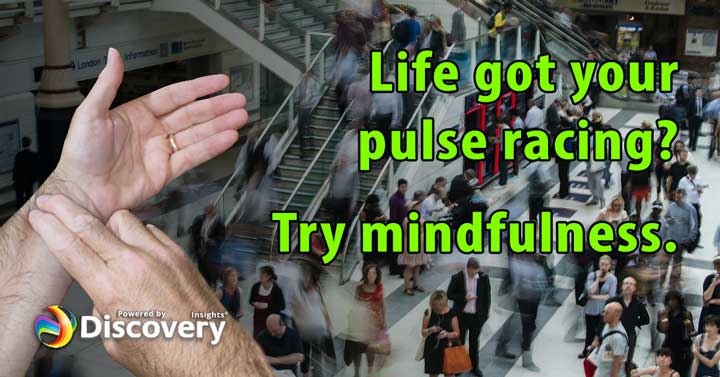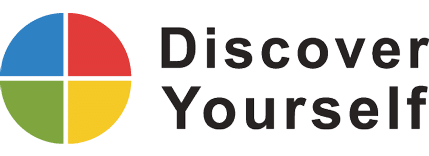Discover Yourself Mindfulness

Those who are interested in the world of psychology will surely have heard the term “mindfulness,” a practice that brings together psychology with elements of meditation. Mindfulness has been used as a therapy for depression, anxiety, PTSD and more, but is also considered beneficial for people dealing with everyday stresses and the pressures of life.
But what exactly is mindfulness, and how can it help in the workplace? This is the subject I’ll be covering today.
What is Mindfulness?
Many people regularly feel rushed and stressed, with too much to do and too little time to do it in. This is especially true of those who are career-minded, and who want to succeed at their jobs. For these people who feel as if they never have a moment to themselves or that they never get a break, mindfulness can help.
The basic principle of mindfulness is to stop for a few moments and take time to be aware of exactly how you are feeling, mentally and physically, and to register experiences as they are in the present moment. Instead of the usual racing thoughts, daydreams about the future, or worrying about past mistakes, mindfulness encourages people to force themselves to be still for a minute; to concentrate on their perception and body, rather than being distracted by thoughts of what is to come.
This might sound easier said than done, but there are practical ways that people can practice mindfulness. One popular exercise is to find a quiet room and take a small snack of some kind, like a biscuit or a raisin. Then you sit quietly and eat the snack slowly, taking time to think about how you can smell the scent of the food, all the different flavors you taste on your tongue, the feeling of your jaw working, an awareness of your swallowing, and so on.
Don’t try to direct your experiences or force them into a certain direction – just allow yourself to observe. By paying great attention to these sensory experiences, you get more in touch with your body and you also calm your mind by occupying it with something present for a few minutes.
Mindfulness and Meditation
Those who have experience with meditation will find many similarities between that practice and mindfulness. Meditation teaches people to focus on the moment as well, to observe their thoughts passing without trying to control or follow them. In this way, meditation and mindfulness are very similar.
However, meditation takes a great deal of practice. Some people are put off by the requirements to sit in a certain way, or by its association with spiritual or religious beliefs. Mindfulness can be an entry route into the same benefits of meditation, but without the spiritual aspects if those do not appeal.
One aspect that both mindfulness and meditation teach the importance of is paying attention to breathing. When people are stressed or anxious, their breathing and heart rate increase, and they feel tense and ready to snap into action at any point. (This is the fight or flight response.) Learning to listen to and feel one’s own breaths can help to slow breathing and heart rate, yielding a sense of relaxation and mastery of oneself.
Mindfulness as Treatment
Mindfulness can be particularly beneficial for those who suffer from mental disorders like anxiety or depression, and for those struggling with issues like workplace stress. Many people with mental health issues suffer not only from the symptoms of these issues, but also from feelings of shame or worthlessness that come from not being able to cope with the symptoms. For example, a person who is stressed at work may have trouble sleeping and find themselves being snappy and on edge. They may even feel that they are weak for not being able to cope when their colleagues seem to manage okay.
Mindfulness teaches us to observe thoughts and feelings neutrally, without judgement over whether those thoughts and feelings are good or bad. A person who is stressed but practicing mindfulness might note that their pulse is high, that their muscles are cramped, and that they are having problems concentrating, without berating themselves for feeling these things.
Simply acknowledging the legitimacy of these experiences without trying to push them aside or feeling guilty for having them can be very helpful in getting symptoms under control.
Everyday Mindfulness
If someone hasn’t tried mindfulness before, it might seem like it would be difficult to start. But in fact, it’s something that can be added into a daily routine without too much trouble. One popular way to learn to start mindfulness and meditation is to use smartphone apps such as Headspace or Calm, which guide users through a brief daily practice. Other people learn meditation as part of a group or in an exercise class like yoga or various martial arts. Finally, more psychologists and therapists are now teaching mindfulness to their clients as part of their service.
Even without these guiding lessons, people can benefit from a few simple tricks when they are feeling overwhelmed or stressed. Finding a quiet space is key, as is giving yourself permission to sit quietly for a few minutes. Concentrating on the body and on current physical feelings can help to stop racing thoughts or unhelpful rumination. And trying to accept your thoughts and feelings as temporary experiences rather than things which are good or bad can help to alleviate feelings of shame when you are struggling. These steps can be performed anywhere, so next time you are feeling overloaded at work, try taking a few minutes to be mindful and see if that makes you more productive and less stressed.
For more information about how psychology can be applied to the workplace, visit www.discoveryourself.com.

 When you’re looking for a personality assessment to use in your workplace, you’ll find that there are lots of different assessments, based on different psychological theories and providing different kinds of information. Two of the most popular assessment tools are Discovery (also known as Insights Discovery) and Disc (also written as ‘DISC’). In Disc vs Discovery we’ll talk about the similarities and differences between these two assessments so that you can see which one might best suit your needs.
When you’re looking for a personality assessment to use in your workplace, you’ll find that there are lots of different assessments, based on different psychological theories and providing different kinds of information. Two of the most popular assessment tools are Discovery (also known as Insights Discovery) and Disc (also written as ‘DISC’). In Disc vs Discovery we’ll talk about the similarities and differences between these two assessments so that you can see which one might best suit your needs.








